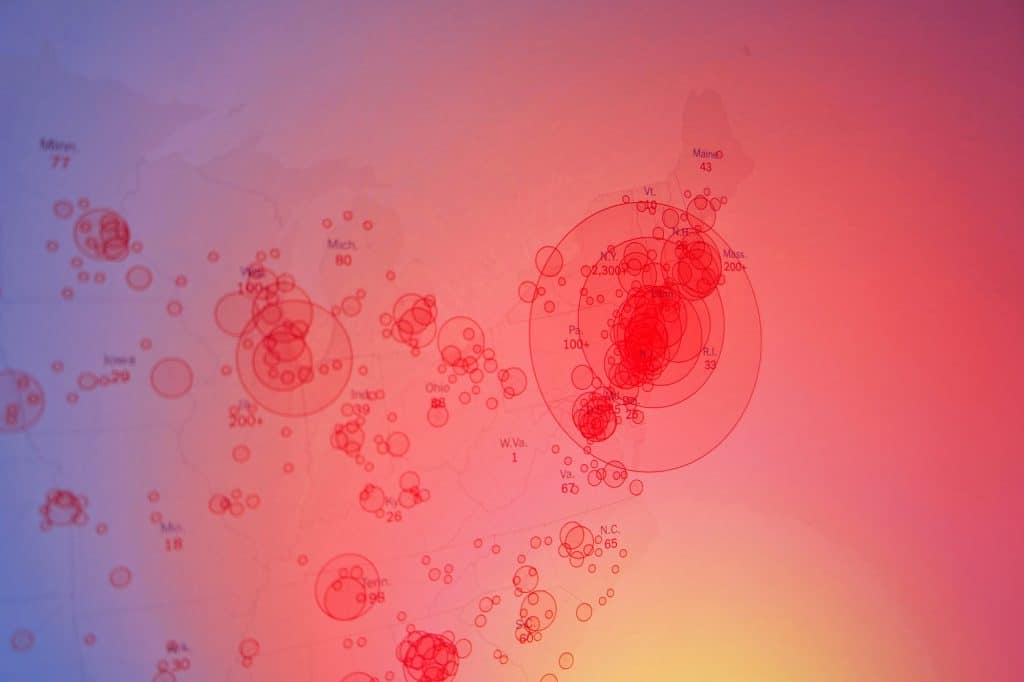

This figure shows the approach’s accuracy (quantified by AUC in the
vertical axis; up is good) as a function of the percent of sick patients,
rho, and the number of PCR tests per patient, R. Taking more PCR tests improves accuracy, while having more sick patients requires more PCR tests.
One of the big challenges related to addressing COVID-19 in the U.S. is the lack of testing. A group of researchers has come up with a technique that could significantly expedite testing, making the process faster and more efficient. Their advance is an algorithm for testing protocols, not a change in testing technology.
Their work builds on a concept called “group testing,” in which pools of genetic material from multiple patients are processed together. If the test is negative for COVID-19, the result shows that all of the people tested are healthy. If the test is positive, then more measurements are needed to figure out who’s positive within that group. A research team in Israel has already done a “proof of concept” demonstration showing that pooling genetic material works with genetic (PCR) coronavirus tests. And a group in Austria has published a paper on a simple group testing algorithm. A group at NC State began work on a more sophisticated algorithm in February.
“Numerical results indicate that our algorithm requires fewer measurements than the Austrian group and/or provides lower rates of erroneous diagnosis,” says Dror Baron, an associate professor of electrical and computer engineering at NC State who is leading the project. “We estimate that our algorithm would allow authorities to test a large population using six to seven times fewer PCR tests than conventional testing methodologies.”
A pre-publication paper describing the algorithm and related work has been made available on arXiv.